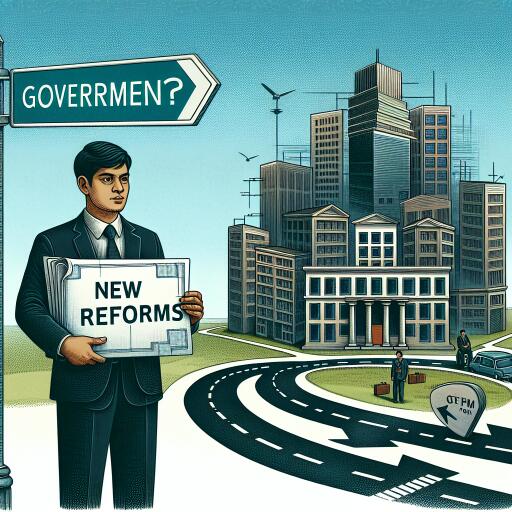Infosys Founders Advocate for Entrepreneurship and Research Investment in New Government
With a new government set to take office in New Delhi, Infosys founder NR Narayana Murthy and co-founder S ‘Kris’ Gopalakrishnan are voicing their hopes for policy directions that cultivate entrepreneurship and foster research investments. Highlighting the critical role entrepreneurs play in job creation, wealth generation, and tax revenue increase, they see these areas as essential for tackling the nation’s poverty and advancing economic growth.
Encouraging Entrepreneurship for Poverty Alleviation
Narayana Murthy expressed his belief in the power of entrepreneurship to transform ideas into valuable societal assets, creating employment, wealth, and augmenting the government’s tax base. “The ideal scenario for a developing country is to ensure entrepreneurs face no obstacles in their journey to generate jobs, wealth, and taxes,” Murthy articulated, emphasizing the necessity for the government to adopt a stance that fully supports entrepreneurial endeavors without unnecessary hurdles.
He argued that sustainable poverty reduction has historically been achieved through the promotion of entrepreneurship, advocating for a model of “compassionate capitalism” where entrepreneurs can operate with freedom and minimal governmental interference.
Investment in Research and Simplified Startup Processes
On his part, Kris Gopalakrishnan pointed towards the importance of amplifying both public and private investment in research and simplifying procedures for startups. For the incoming government, making it easier to start and run businesses, alongside enhancing quality of life for citizens, should be top priorities. Gopalakrishnan also called for a reevaluation of the angel tax that burdens startup investments, highlighting the continuous issues faced due to over-regulation aimed at preventing fraud.
Lesson from Infosys: Encouraging Equity Donations to Research Institutions
Within the context of their efforts through the Infosys Science Foundation, both Murthy and Gopalakrishnan have pushed for policies that would encourage private companies to contribute equity shares to premier research institutions. Gopalakrishnan underscored the potential for such donations to greatly bolster the confidence of these institutions, provided there is governmental support to clarify and streamline the process.
Murthy reinforced this, sharing his past experience when attempting to donate Infosys shares to educational bodies, and how regulations at the time only allowed for cash donations. Reflecting on the substantial growth of Infosys shares since then, he underscored the missed opportunity and potential benefits such donations can offer.
Observing Economic Growth through Consumer Behavior
Murthy shared observations from his own neighborhood in Bengaluru, citing the emergence of new businesses and vendors as indicators of rising disposable income among the middle and lower-middle classes. This increase in local economic activity, according to Murthy, suggests a positive trend in the economy and a rise in purchasing power among broader sections of society.
Conclusion
As the new government prepares to take the helm in New Delhi, the insights and suggestions from industry stalwarts like NR Narayana Murthy and Kris Gopalakrishnan underline the importance of fostering an environment conducive to entrepreneurship and research investment. By addressing the hurdles faced by startups and encouraging investments in research, the upcoming administration has an opportunity to spur economic growth, generate employment, and contribute to the nation’s progress towards eradicating poverty.
